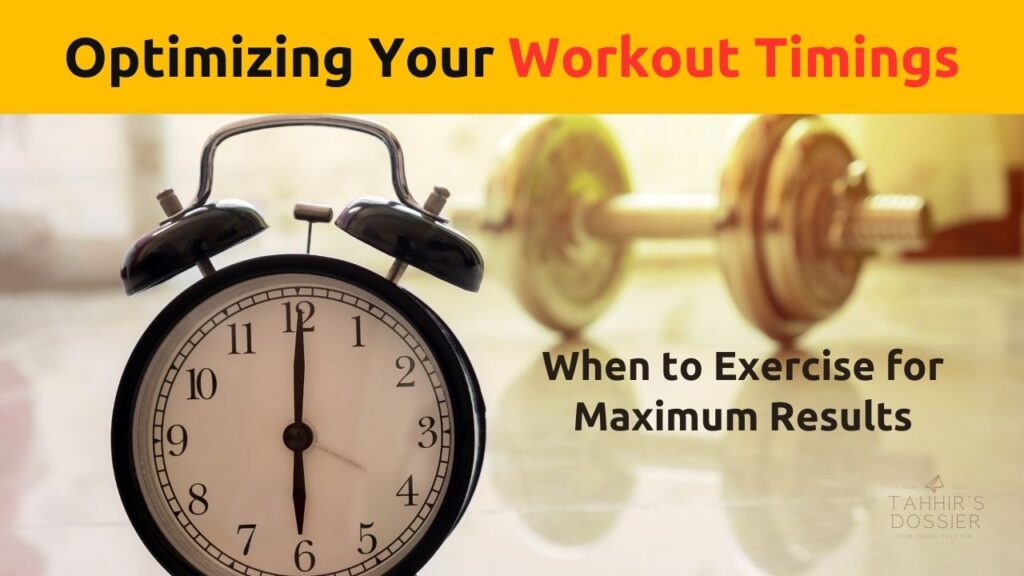As our lives get busier, it can be hard to find the right time to work out. However, the time of day when you exercise can significantly impact your performance and fitness results. By understanding the relationship between workout timings and your body’s natural rhythms, you can optimize your exercise routine for maximum effectiveness.
The Science of Circadian Rhythms
We have biological clocks inside our bodies that control many processes, such as body temperature, hormone levels, and metabolism. These clocks are called circadian rhythms. Throughout the day, these rhythms are also linked to energy levels, moods, and brain function. If you know about these natural patterns, you can make sure that your exercise routine works best for your body.
Morning Workouts: Boosting Energy and Mood
For many individuals, starting the day with a workout can set a positive tone and boost energy levels. A morning workout can help speed up your metabolism, which can help you burn more fat and stay mentally sharp. Doing physical exercise first thing in the morning may also make you more productive and give you a better mood, setting you up for a successful day.
Afternoon and Evening Workouts: Maximizing Performance
Our physical abilities change as the day goes on. Late afternoon and early evening are usually better times for our strength and endurance because our muscles are warmer at these times. This gives you a chance to push yourself during workouts. It could help you make more progress and perform better. Working out in the evening can also be a great way to relieve stress, taking your mind off of the stresses of the day and getting your body ready for rest and healing.
Tailoring Your Workout Timings to Your Goals
You can also tailor workout timings according to fitness goals. Late afternoon and early evening sessions may be helpful for people who want to get better at sports or build muscle power. On the other hand, people who are trying to lose weight or get into a regular fitness practice might benefit from working out in the morning, which keeps their metabolism going all day.
Flexibility and Individual Variability
It’s helpful to understand the science behind workout time, but it’s also important to remember that individual variation is a big deal. When picking the best time to exercise, you should think about your chronotype (whether you’re more morning or evening-oriented), your work plan, and your own personal preferences. Being aware of your body’s natural signals and energy trends can help you figure out the best times to work out for your needs.
Final Verdict
Workout timings can have a big effect on your overall fitness experience, affecting everything from your energy level to your mental health and physical performance. You can get the most out of your workouts by making sure they work with your body’s natural rhythms and your own specific goals. Understanding and adapting your workout times can help you get the most out of your body, whether you like the energy-boosting start of a morning workout or the strength-building benefits of an evening exercise.
Read more: Movement for Mood Elevator and Nutrient Timing for Workout
